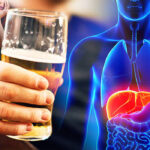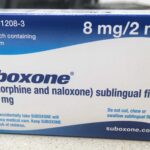Receiving help for a drug or alcohol addiction can be scary and intimidating, especially if an inpatient rehabilitation program is recommended. This step is a significant change, even when the person wants to stop using. Many people worry about how this will impact their lives, jobs, and relationships and whether it will work. Unfortunately, concerns and uncertainty about going to an inpatient program can cause some people to put off receiving the treatment they need.
Fortunately, drug and alcohol treatments can help, regardless of how severe or how long a person has been addicted. Knowing what to expect from inpatient treatment can help ease concerns. Most drug and alcohol treatment programs have many features in common. Understanding the purpose of the different phases in inpatient treatment and the types of therapies and treatments typically available can make the journey toward addiction recovery less overwhelming.
If you or a loved one is dealing with a drug or alcohol addiction, help is available by calling the Rehab Helpline for Drugs and Alcohol at (877) 467-4825. They can connect you with a rehabilitation admissions expert who can answer your questions and tell you more about treatment options.
What is a Drug or Alcohol Inpatient Treatment Program?
Inpatient addictions treatment is a structured program where the person lives at the facility while participating in the addiction services. In this type of program, support is available 24 hours a day. They will have a specific schedule, live in an assigned room, eat meals there, and attend daily therapies and activities designed to help them overcome their addiction.
An inpatient rehab program also helps remove the person from their current environment. As a result, they will be away from triggers associated with their substance of choice, including people, places, or situations. Being in a new, supportive environment during treatment also allows them to focus on their recovery.
For eight specific tips to beat drug addiction, click here.
Common Features of an Inpatient Drug or Alcohol Treatment Program
There isn’t a one-size-fits-all treatment plan for addictions. Fortunately, there are options and different types of inpatient programs available, so people can find the right solution for their needs. For instance, some inpatient rehabilitation programs may have more amenities than others, and programs last for different lengths of time. However, almost all inpatient treatment programs have core features in common.
Each of these features plays a critical role in the recovery process. During this process, the program will help the individual safely stop using substances, understand the cause of their addiction, and learn new behaviors, strategies, and coping methods to help them live without substances and avoid relapse.
Intake or Check-in Process
During the intake process, the staff will ask questions and gather information to help them focus and tailor the services to the person’s needs. While additional information will be learned and collected throughout the program, this initial step is important. This time will also help the person begin to acclimate to the program.
Medically Assisted Detox Phase
Next, individuals will need to detox—let the drugs or alcohol flush out of their system—before beginning the intensive therapeutic phase of treatment. The detox phase focuses on ensuring the person has the medical support needed to safely go through the withdrawal process from the substances they had been using.
A medical team will evaluate the person and may take blood tests to ensure a safe detoxification process. They will also be monitored throughout the process and provided medications as needed to help manage the withdrawal process.
This process will vary based on the types of drugs or alcohol used, amounts typically consumed, and length of addiction. The detoxification process can take a few days or a couple of weeks. During this time, the person will have the support needed to help manage drug or alcohol cravings and prevent a relapse.
Some people will need to detox at a medical facility. They will be transferred to the inpatient rehabilitation program to begin their substance abuse treatment and rehabilitation program after completing the detoxification phase.
Daily Therapies
Most treatment programs offer a variety of therapies, including group and individual approaches. Both approaches are helpful and work well when used together. Participants may learn ways to cope with cravings, identify triggers, develop strategies and skills to prepare for dealing with the day-to-day struggles while staying substance-free, and more. Therapies also provide education and help address the underlying causes of the person’s addiction.
There is typically a set schedule of different therapies each day. Many programs incorporate behavioral, cognitive-behavioral, and motivational interviewing therapies, as these approaches have been found effective across numerous research studies.
Individual Therapy
Individual therapy provides the person time to talk with a professional addiction counselor or therapist about their specific situation, needs, and concerns. During this one-on-one time, they will take a closer look at the person’s addiction, behaviors, triggers, and impact on the individual and their family and social network. The therapist will also teach tools and strategies to help the person cope with triggers or stressors without turning to drugs or alcohol.
The specific focus and topics will depend on the individual’s situation and needs. The frequency and length of sessions may vary across treatment programs.
Group therapy
Group therapy can help people feel less isolated, provide support, and provide the opportunity to learn from each other’s experiences and perspectives. A trained counselor or therapist will lead the group. The size of the group may depend on the program.
There are many different types of groups, and the kinds available may depend on the treatment program. Some types of group therapies that may be offered include:
- Skills development groups that focus on building skills needed to stop using
- Psychoeducation groups that provide information on substance addiction to help increase understanding and avoid using
- Cognitive-behavioral groups that explore behaviors and thinking patterns that lead to using
- Support groups where members can provide support and feedback to each other
Family Support and Therapy
Family plays a critical role in the person’s journey toward recovery, and that includes inpatient rehabilitation. Research supports that having families involved in aspects of the person’s care can help a person complete an inpatient program.
The role and types of contact family members will have, however, can vary across different treatment programs. There may be set times or days that people can contact family, and the types of communication may vary depending on where the person is in the recovery process.
Personal Time
People often will have a few scheduled hours of personal time. Individuals can use this time to read, exercise, meditate, or journal. This time may also be spent socializing and getting to know other residents at the facility.
Develop an Aftercare Plan Tailored to the Person’s Needs
Towards the end of an inpatient treatment program, the treatment team will work with the person on establishing an aftercare plan to help them transition to the next phase of recovery. Following through with the aftercare plans is critical to reducing the chance of relapsing. The specific plan will be tailored to the person’s unique needs.
Being Prepared Helps Ease Concerns About Drug and Alcohol Treatment Programs
Drug and alcohol addictions are chronic, complex illnesses, but treatment does help. Inpatient rehab programs provide a structured, safe environment for individuals to detox from substances and receive the education, therapy, and strategies needed for recovery. Understanding the process and purpose of inpatient treatment programs can make it less intimidating.
While many programs have similar features, some rehab programs may be a better fit than others. When investigating programs, consider any needs that you have, such as mental health or medical conditions. You also may want to make a list of questions, including types of treatments available, insurance accepted, the structure of a typical day, and how aftercare planning is done.
Getting the proper treatment for a drug or alcohol addiction is critical for the person to start the path of recovery. Fortunately, the Rehab Helpline for Drugs and Alcohol at (877) 467-4825 can help you or a loved one connect with a rehabilitation admissions expert. The expert can answer your questions and tell you more about treatment options that can help you.









